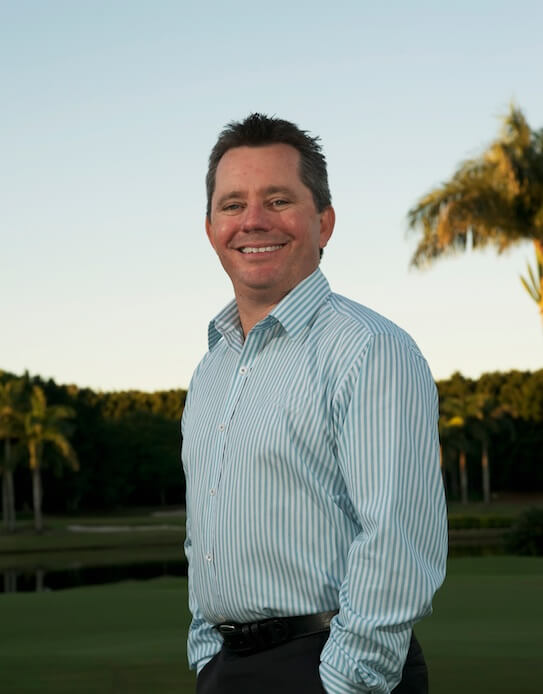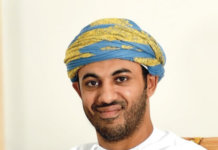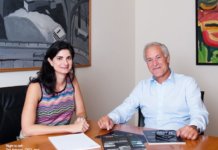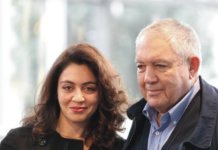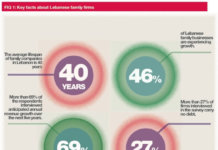Interview with Nick Bloor, Founder of Technigro and the IVM Group, Australia
Nearly three decades ago, at the age of 19, Nick Bloor dropped out of law school in order to pursue his dream of making a difference. Through his love of nature Nick developed a passion for sustainable vegetation management and soon started his own company, Technigro. The young entrepreneur’s vision to change the way vegetation is managed in Australia and beyond soon caught on with his family and both his brother and his father joined the business.
The family business grew steadily and after a few years started investing time and money into developing more sustainable solutions and technologies for vegetation management. After establishing multiple global patents and revolutionising vegetation management in Australia, the Bloor family sold Technigro in 2013 and transitioned its innovations into a new technology and innovation company called the IVM Group. The family business now dedicates all of its energy to disruptive innovation in the field of Integrated Vegetation Management (IVM). Nick Bloor, founder of Technigro and the IVM Group, spoke to Tharawat magazine about the cost of seeking change, the dynamics of a supportive yet challenging family and the business of disruption.
What prompted you to start your own business 27 years ago?
I had a strong desire to make a difference. When I was 19 I was studying law and working in a lawyer’s office. But I didn’t feel like I was making an impact. This created a personal desire to find a problem to solve. My father used to work in Perth and when he came back to Queensland and told me about the innovations in vegetation management he had witnessed there, I got really excited. I had always been passionate about nature. So I then started to think of ways to build services around sustainable vegetation management.
[ms-protect-content id=”4069, 4129″]
I soon quit my day job at the law firm. My boss at the time told me that I was making a huge mistake. Years later he wrote me a letter to congratulate me on our success. You draw some courage from wanting to prove people wrong. To be fair it was ignorance that got me started, if I had known everything I know now, I doubt I would have had the courage at that age.
When did your enterprise become a family business?
At first it was just me. I studied horticulture at night and saved up to buy my first truck. My wife Tracey and I had just met and she used to lend me money to put fuel in the truck [laughs]. She is truly an entrepreneur’s wife. We started Technigro in the late 80s and began by offering simple vegetation care to the Queensland community.
My older brother Kym joined the business and so did my father Trevor. Kym is eight years older than me and has a very different personality. He is a doer and the pragmatic type, which probably comes from his military background. We balanced each other out during the early stages of the business and there is no doubt that we would not have gotten this far without each other. His wife Tanya also worked in the business for a while and she brought a lot of professionalisation in terms of administration and systems. Everyone played a vital role in the success of the business, even from the early days.
My wife Tracey always downplays her role in our success but in a family business everyone just steps in where they have to. My stepmother for instance had run a successful curtain making business and helped support the family while we grew the business.
What exactly initiated the innovative spirit in your company?
I believe that the whole is the sum of its parts. Both family and non-family members of the company brought essential elements to the business, which has contributed to our success. One of our core values is Achieving More Together. The more people we let in the more we became innovative. The atmosphere has always been collaborative from the beginning. I can tell you about ten critical strategic moves that weren’t my idea. I have always seen my role as the person who fosters a culture of innovation. The person who invites people to try new things. It is all about harnessing resources and channelling them.
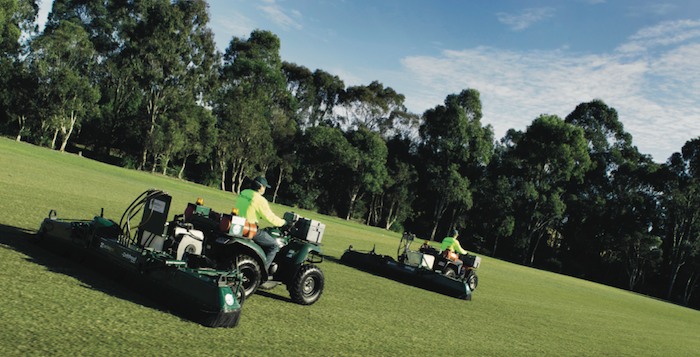
Was your family keen on creating innovation from Technigro’s inception?
Even if it was at times frustrating for the family they still allowed innovation to happen. They had a lot of patience and we invested a lot of capital in what ended up becoming the IVM Group.
It went beyond the family too. For instance our R&D manager worked on the concept, which was really exciting. But we had other financial challenges at that time. I knew I couldn’t go to the family with this at that moment because it would have been too much to ask for. So my R&D manager said he would pay for the development of the product. That is the culture we had fostered. So this was a situation where I was confronted with the emotional limits of the family and a non-family employee came through for us.
How did you know when not to push for innovation with the family’s well-being in mind?
My brother has always been my barometer when it came to that. I always felt that if I could convince him I could convince the rest of the family as well. He is very down to earth and has kept me grounded too. My father is also experienced and very intuitive and helped balance out the relationship my brother and I have.
When did innovation become such an intertwined aspect of the family’s makeup?
We started talking about innovation about ten years after the business was founded. We hit a wall in terms of growth and were facing a huge competitor that had come from the other side of the country, Perth. They were outbidding us and as a result took away a large contract. They were narrowly focused on commercial vegetation management, which at that stage was half of our business. We sat together as a family and looked at what our options were. We could either get out of our core business and focus on the things our competitor wasn’t doing, or we could stop all other activities and focus on what we do best. We decided on the latter option whilst applying innovation in order to outdo the competition. We got rid of some of our contracts and gave some of our work to employees who started their own businesses. We knew that to beat the competition we had to think beyond ourselves and that is when we started developing our first real invention. The DriftProof sprayer is designed to apply liquid products, such as selective herbicides, insecticides, fertilisers and soil conditioners. The patented shield prevents potentially harmful spray droplets from escaping into the atmosphere. It also reduces chemical use by up to 70%.
We developed the prototype in our garage. I had a friend who was well skilled in working with composite materials and our R&D manager used to work for Siemens and is a bit of a genius. We developed the prototype in a few weekends and within a few months we won back our clients and outdid the competition. We were able to prove that we could minimise environmental impact and maximise productivity with our services and inventiveness. The engineering behind it was quite brilliant. The customers valued our commitment.
This breakthrough gave us so much confidence. The family started becoming less reluctant to innovate. Our R&D manager is still with us today in the new company. In many ways I have seen my role develop into that of an innovation enabler.
It was crucial that the family was so supportive and stood together through the risk stages as it was really a long-term investment. A lot of the innovation we came up with wasn’t initially recognised by the market and it took some time for people to buy into it. But this was the beginning of how we started transitioning into a full time innovation and technology firm.
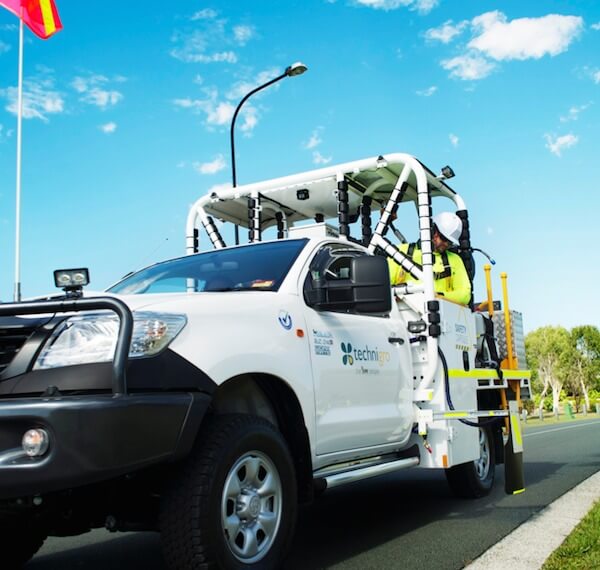
You recently graduated from MIT. Why did you feel you needed to go back to school?
In 2006 we hit another invisible wall. This was the point where I felt that I was holding back the business. I started reading about leadership and joined the Entrepreneurs Organisation (EO), an organisation for entrepreneurs. Before this I had always felt like an anomaly, like someone isolated due to my drive. I suddenly saw others around me with similar skill sets to my own. It showed me that I had to venture out of Australia.
By 2007 I was travelling all over and that lead me to commencing the programme at MIT. With Technigro we started working with knowledge partners in the UK and the US. We started collaborative research. This was tough on the family because things became quite abstract and geared towards the long run and it started becoming quite far removed from what we did with Technigro.
I have always had a sense of dissatisfaction. I think it is the unrest that I have within me that always makes me look for the next thing. I guess you can call it disruption. It is not easy for the family to always have patience with this, which I can understand.
When were you approached to sell Technigro and when did you start the IVM Group?
We were approached about the sale in 2012. This was after we’d started utilising the IVM concept as an innovation hub within Technigro. We then sold the operations segment of Technigro and the IVM Group emerged as the new core business.
Did your brother and father transition with you into the new business?
No. We decided after a number of long discussions that we were on different paths.. We are all at different points in our lives and they did not feel the same sense of ownership over the IVM Group as they did for Technigro. My brother still works with Technigro under the new ownership. The journey we are on right now is one dedicated to disrupting our industry.
Now at the IVM Group it’s just Tracey, our two sons Josh and Sam, and me. The rest of the family is still cheering us on and their influence remains strong.
Now that innovation is your core business how do you think this will impact your work?
In a way it has been freeing because we can now focus solely on the innovation aspect of things and do not have the operations business to run. All the technologies that we are developing have global potential. Now I am more focused on finding the right partners and we want to collaborate with other family businesses because we think alike.
For me the IVM Group is a natural progression, taking into the future what Technigro started. Tracey and my sons are involved now with me in the new business, it feels good, it feels right for our family. My vision was to make a difference in vegetation management and via Technigro we worked on the intellectualisation of that goal in order to form this new entity the IVM Group.
What is your recommendation for other family firms who want to disrupt?
You have to move from doing to thinking. Think about answers to problems that you encounter and don’t just work around them. For instance one of our inventions allows for the drastic reduction of the amount of grass mowing that has to be done on the public roadsides. This comes during a time when there is less money for public maintenance. Yet people’s quality of life expectations are always rising which has birthed the need for this disruptive innovation.
If you want to disrupt, you have to find a problem you are passionate about and then dare to imagine that you might be the one to find the solution to it.
Tharawat Magazine, Issue 24, 2014
[/ms-protect-content]



